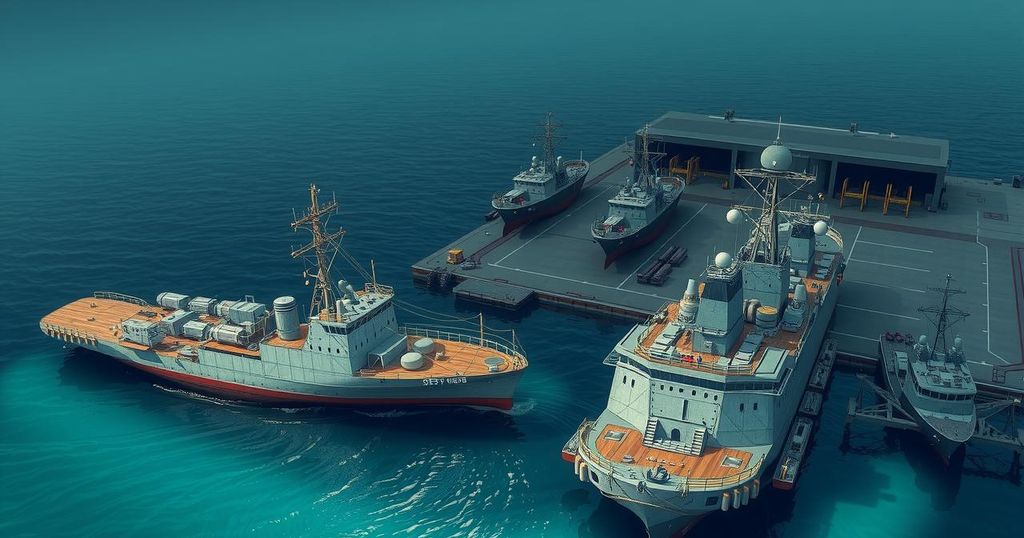Sudanese Foreign Minister Affirms Military Autonomy and Arms Procurement Rights
Sudanese Foreign Minister Ali Youssef confirmed ongoing military operations during Ramadan and clarified an agreement with Russia for a naval service area on the Red Sea, not a naval base. He emphasized that Sudan acquires weapons from countries willing to sell, such as Iran and Ukraine, due to Western sanctions. Youssef rejected the notion of Sudan becoming a colony, stressing the importance of maintaining autonomy in military and foreign policy.
In a recent interview on BBC Arabic, Sudanese Foreign Minister Ali Youssef discussed ongoing military operations in Sudan, stating that fighting will persist through Ramadan, which he termed “the month of war” in Islamic history. He elaborated on an existing agreement with Russia regarding a naval service area on the Red Sea, clarifying that it is not a naval base but a facility for servicing military naval vessels.
Youssef stressed that Sudan’s military capabilities are hindered by Western and American sanctions, limiting the country’s ability to procure weapons. He firmly rejected the notion of the Sudanese army merely surrendering and asserted that the country obtains arms from nations that do not impose sanctions. Specifically addressing reports about acquiring weapons from Iran and Ukraine, he affirmed Sudan’s right to purchase arms from any willing country.
When questioned about hosting a Russian naval service area, Youssef emphasized that Sudan maintains beneficial relations with both Russia and Europe, asserting that the nation does not wish to become a colony of any foreign power. He maintained that Sudan’s foreign policy is based on its interests rather than permanent alliances or antagonisms, and underscored that the service to be provided is merely to military ships and does not signify a permanent military presence.
Confronted about potential foreign military influences in the region, Youssef highlighted that many nations, including France and the U.S., maintain military presences in various locations without it being termed colonialism. He maintained that Sudan’s situation is unique due to economic isolation caused by sanctions, stating, “We buy weapons from whoever.”
Youssef firmly rejected claims of Sudan being a battleground in the conflict between Russia and Ukraine, dismissing any suggestion of utilizing Ukrainian fighters in the conflict. Directly addressing media reports, he stated, “I refuse to be told who we can deal with,” emphasizing that neither outside forces nor media can hinder Sudan’s military acquisitions.
In summary, Ali Youssef’s interview reveals Sudan’s determination to maintain military autonomy amidst international sanctions. His comments express frustration with Western restrictions while affirming Sudan’s rights to procure weapons from any willing partner, including Iran and Ukraine. Youssef’s stance on the naval service area with Russia underscores Sudan’s pursuit of strategic alliances without succumbing to colonial influences. The discourse illustrates ongoing complexities in Sudan’s military and foreign relations as the country navigates external pressures.
Original Source: www.memri.org




Post Comment